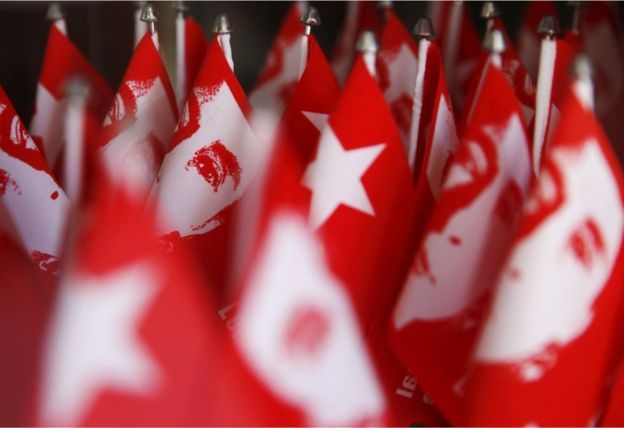With the National League of Democracy’s victory in Myanmar’s 8 November election confirmed, all eyes are on what happens next.
As in the last freely contested general election of 1990, Aung San Suu Kyi’s National League for Democracy has won by a landslide.
The incumbent army-established Union Solidarity and Development Party, which secured government via a stage-managed election in 2010 that the NLD boycotted, has suffered a heavy defeat. With a couple of exceptions, ethnic minority parties have also fared poorly.
Although the international community has praised the conduct of the elections, the biggest test of Myanmar’s political transition away from military dictatorship and towards democratic government is yet to come. Will the military concede to government by the NLD? What are the implications of the NLD win for the nationwide ceasefire process? Who will be president? And what of Suu Kyi’s remarks that whoever the president is, she will be above him?
In this series of podcasts, scholars and specialists from the ANU Myanmar Research Centre provide answers, and outline what the election results mean for Myanmar.
Speakers include:
Morten Pedersen – senior lecturer at the University of New South Wales (UNSW), Canberra.
Janelle Saffin – visiting fellow at the Asia-Pacific College of Diplomacy, ANU, and a former Australian Member of Parliament at both the state (NSW) and federal levels.
Khin Maung Yin – PhD candidate at UNSW, Canberra.
Nicholas Farrelly – fellow in the Coral Bell School of Asia Pacific Affairs, ANU, and the director of the ANU Myanmar Research Centre.
Khin Khin Mra – master’s degree candidate at the Crawford School of Public Policy, ANU.
Trevor Wilson – visiting fellow in the Department of Political and Social Change, ANU, and a former Australian Ambassador to Myanmar.
Khin Thidar Aye – PhD candidate in the Department of International Relations, ANU.
Listen to all the podcasts, or individual talks, via the player above.
These podcasts form part of New Mandala’s ‘Myanmar and the vote‘ series.
 Facebook
Facebook  Twitter
Twitter  Soundcloud
Soundcloud  Youtube
Youtube  Rss
Rss 